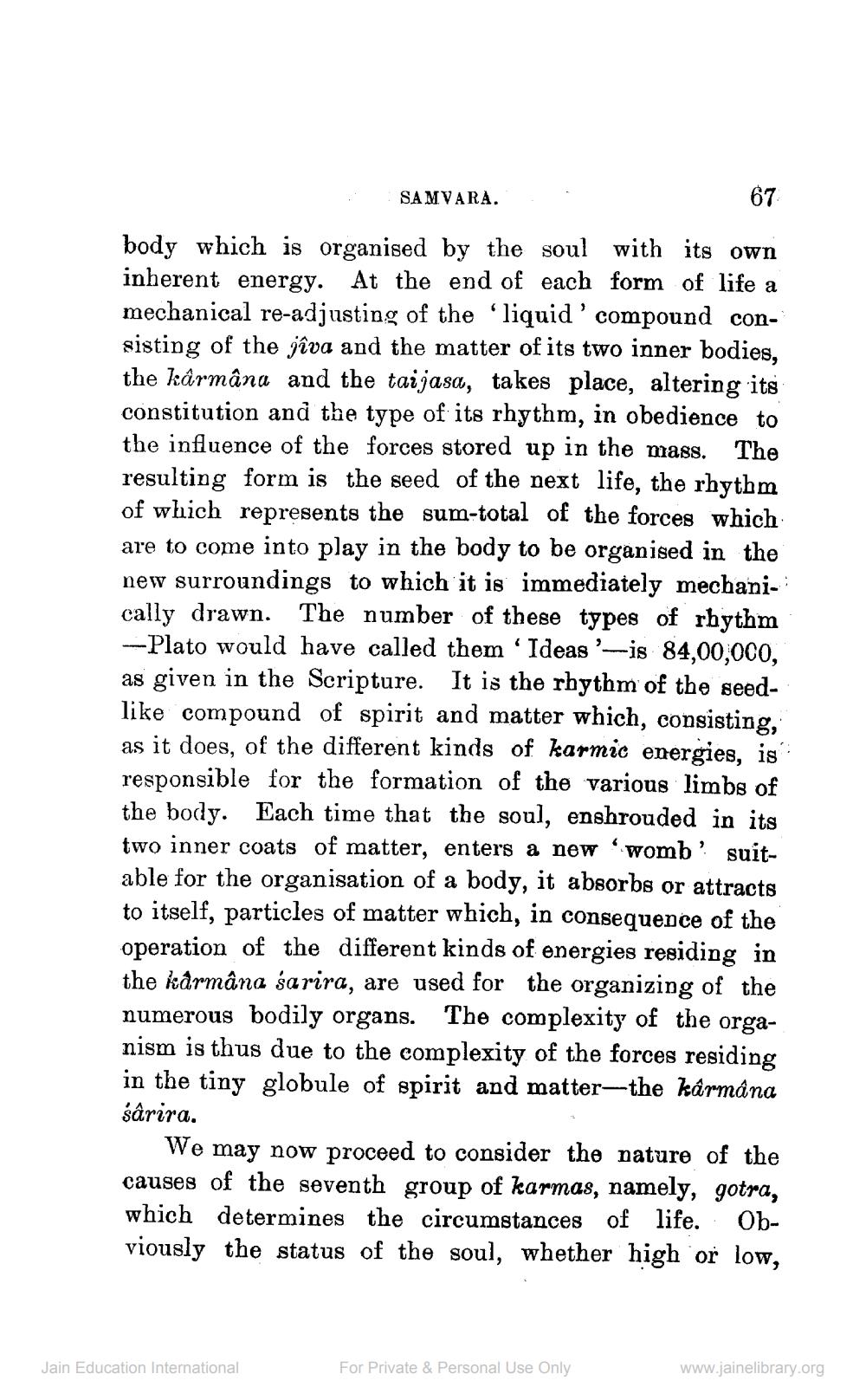________________
SAMVARA.
67
body which is organised by the soul with its own inherent energy. At the end of each form of life a mechanical re-adjusting of the liquid 'compound consisting of the jîva and the matter of its two inner bodies, the kârmâna and the taijasa, takes place, altering its constitution and the type of its rhythm, in obedience to the influence of the forces stored up in the mass. The resulting form is the seed of the next life, the rhythm of which represents the sum-total of the forces which are to come into play in the body to be organised in the new surroundings to which it is immediately mechanically drawn. The number of these types of rhythm
- Plato would have called them 'Ideas '-is 84,00,000, as given in the Scripture. It is the rhythm of the seedlike compound of spirit and matter which, consisting, as it does, of the different kinds of karmic energies, is responsible for the formation of the various limbs of the body. Each time that the soul, enshrouded in its two inner coats of matter, enters a new womb? suitable for the organisation of a body, it absorbs or attracts to itself, particles of matter which, in consequence of the operation of the different kinds of energies residing in the kârmâna sarira, are used for the organizing of the numerous bodily organs. The complexity of the organism is thus due to the complexity of the forces residing in the tiny globule of spirit and matter--the kârmâna śârira.
We may now proceed to consider the nature of the causes of the seventh group of karmas, namely, gotra, which determines the circumstances of life. Obviously the status of the soul, whether high or low,
Jain Education International
For Private & Personal Use Only
www.jainelibrary.org




